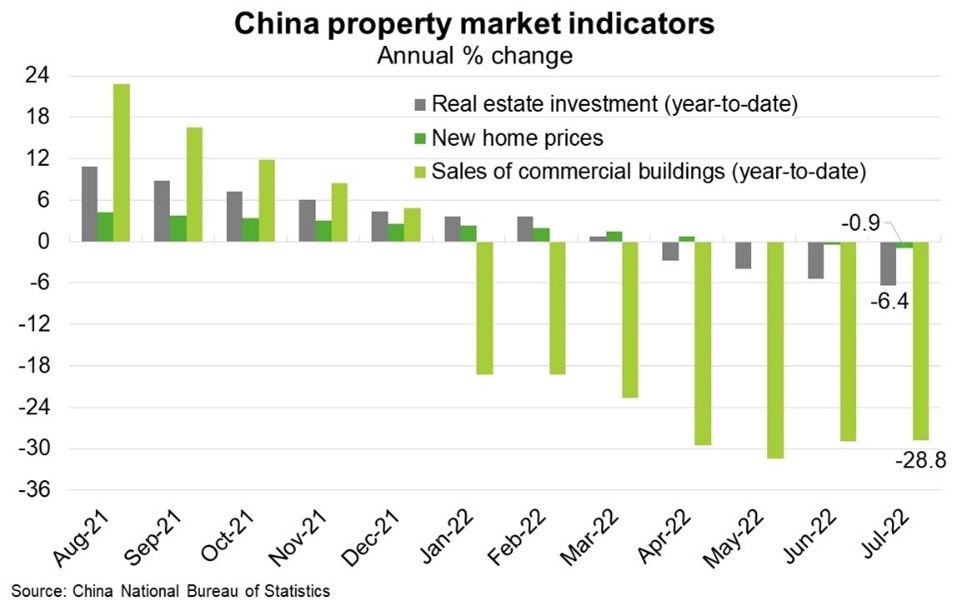China—Property market downturn raises economic and financial risks
The IMF forecasts China’s economy to expand 3.3% this year, the second slowest growth rate in more than four decades. July data showed the government’s COVID-19 elimination approach, including persistent lockdowns and travel restrictions, remains a weight on services activity and consumer spending. COVID-19 cases have surged again in August, suggesting further disruption to domestic economic activity in Q3. Making matters worse, the property market downturn accelerated through July. Declines in real estate investment, home sales and house prices will exacerbate the economic slowdown (Chart). Real estate and related activities account for around 30% of GDP, up from less than 10% at the end of the 1990.
The property downturn is also raising financial risks. More developers are defaulting on their debts. According to Wind Information, defaults on domestic debt, including late repayment, have more than doubled over the year to August 8. As a result, banks are facing higher non-performing loans, challenging their ability to lend to the sector. As developers face difficulties obtaining financing, they have halted construction. This, in turn, has resulted in a mortgage strike, where thousands of homeowners across China who bought property from indebted developers refuse to repay loans on unfinished properties.
In response to a slowing economy and housing troubles, the People’s Bank of China cut lending interest rates and mortgage rates in August. In this regard China is an outlier; most central banks around the world are lifting rates to counter inflation. Although Chinese authorities have introduced new rounds of infrastructure investment to support the economy, wariness of high corporate and local government debt levels may prevent larger scale stimulus. A plunge in property sales and construction activity is a key risk to the prices of key Australian commodity exports moving forward.


